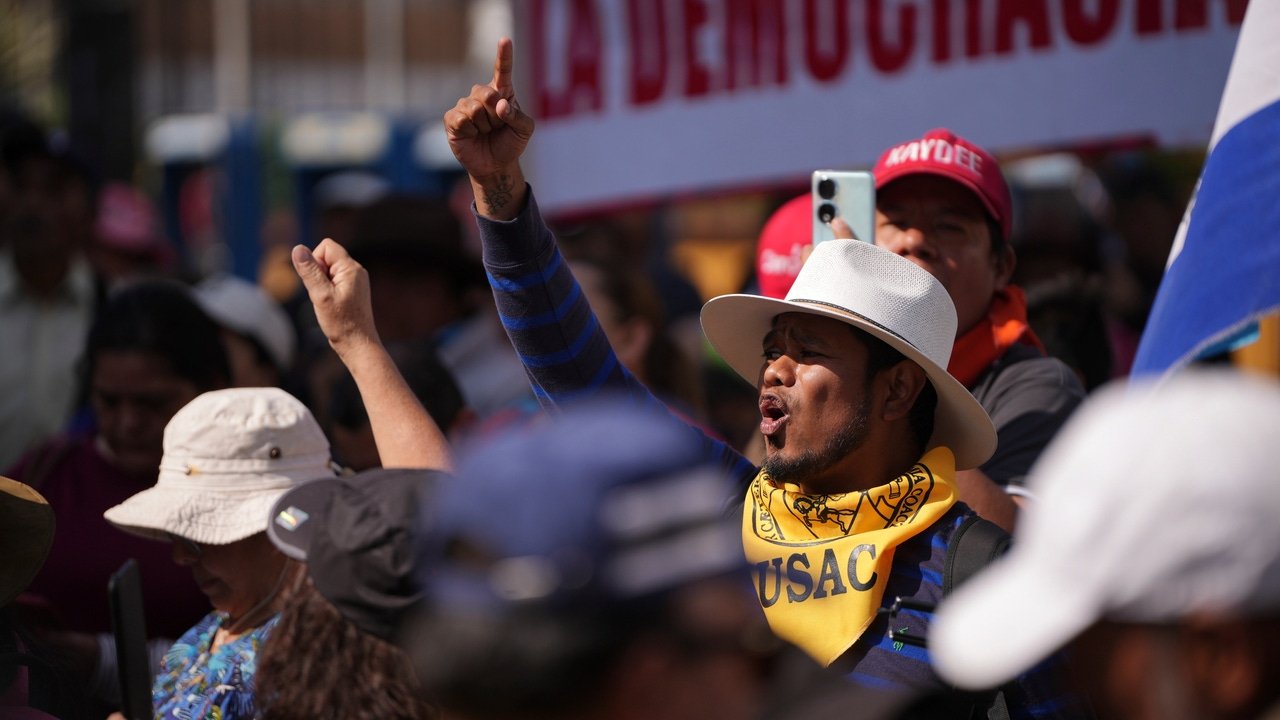Guatemala witnessed the eventful inauguration of its new president Bernardo Arévalo de León , a university professor who promises to end corruption in the Central American country, just as his predecessors Jimmy Morales and Alejandro Giammatei defended. The challenges facing the new head of state are enormous and he has many enemies who have done everything to prevent his rise to power after his election victory in 2023. The new president defined this last chapter as an “attempted coup.” “état” adds to the long list of disasters that Guatemala has experienced over the last sixty years, placing it on the podium of the most affected countries in recent Latin American history.
In reality, a coup d'état occurred in 1954 following a covert maneuver by the United States American CIA overthrow the democratic government President Jacobo Árbenz, who had adopted an agrarian reform plan that provided for the expropriation of fallow land. Washington wanted to prevent communist drift in the middle of the Cold War at all costs. In 1960, civil war broke out between the armed forces and Marxist-inspired guerrillas, sparking a bloody conflict that only ended in 1996 and left more than 200,000 dead or missing.
The return to democracy and peace was not easy. The discovery of gigantic networks of corruption, in which several former presidents are accused of embezzlement, has contributed to deteriorating living standards and fragile democracy. At the same time, Violence became everyday life in this Central American country, whose population owned two million weapons after the peace agreement was signed. Organized crime has infiltrated all sectors of society, as Yolanda Pérez, former President of the Supreme Court, noted at the time. In 2018, there was a murder rate of 22.4 per 100,000 residents, half of which was attributed to gangs and drug trafficking.
In 2007, the Guatemalan government asked the United Nations for help in establishing the so-called International Commission Against Impunity in Guatemala (CICIG), who during his time in office promoted an anti-corruption trial that resulted in 200 officials being brought to trial with 400 convictions. This body, praised by both the European Union and the United States, was dissolved in 2019 with the approval of then-President Morales amid investigations into the executive branch.
Guatemala has been battling another cancer for years that has not stopped its spread. It is the scourge of the drug trade, This has gradually eroded the state's institutions. For decades, the most powerful groups in Mexico have been like that Golf poster and that Sinaloa Cartel, have worked with Guatemalan smuggling networks – such as Los Huistas, one of the country's oldest clans – to ensure a steady supply of cocaine from Central America, InSight Crime reports.
Last year, the former Guatemalan colonel Otto Fernando Godoy Cordón confessed to helping those in power New generation Jalisco cartel to transport cocaine, confirming allegations that members of the Guatemalan armed forces were involved in logistical support for Mexican criminal groups. This trend started in the late 2000s and early 2010s, when The Zetasone of the most powerful and deadliest Mexican cartels in years, recruited and established an extensive bribery system among the Guatemalan police while Mexican drug traffickers seized control of the territory and massacred rival drug traffickers, security forces and civilians.
This scenario has led to the emigration of thousands of Guatemalans for economic reasons in recent years. In contrast to what is happening in neighboring countries such as El Salvador, in Guatemala, according to the organization, many people are forced to leave their homes due to hunger International Organization for Migration (IOM). Guatemala remains one of the most unequal countries in Latin America a poverty rate of 59.3% according to the World Bank.
All these are the challenges facing the presidency of Arévalo, who assured this in his first statements There will be “never again” authoritarianism and praised the young people “who have not lost hope”.

